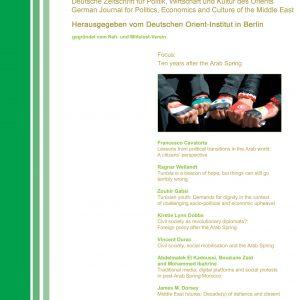Description
Even before Tunisia kick-started the 2011 uprisings across the Arab world and emerged as the only state in which they led to lasting positive change, the North African republic was considered a bit of an Arab exception. It went further in embracing liberal and secular values and had a well-educated middle class, a strong civil society, a comparably moderate Islamist party as well as a military that remained fairly absent from domestic politics. This article takes stock of how these factors helped to set the country on a trajectory different from that of many of its neighbours. At the same time, it warns that the Tunisian transition is far from secured. The post-2011 political system has so far failed to meet the high expectations that it had raised within the population and the political forces that would like to return to the old ways are on the rise. Tunisia might need – and it certainly deserves – more external support to overcome its domestic socio-economic challenges. Europe in particular should make a more substantial effort. Doing so is in its own interest: less than 70 kilometres separate Italy from Tunisia. Should the transition fail, Tunisia’s problems could quickly become Europe’s problems.
Ragnar Weilandt is a postdoc at KU Leuven and an adjunct professor at the Vrije Universiteit Brussels. His research focusses on EU democracy promotion in the Arab world, with a special focus on the EU’s support for and interaction with Arab civil society. More generally, he is studying and teaching EU external action, Euro-Mediterranean relations as well as the politics and international relations of West Asia and North Africa.




Reviews
There are no reviews yet.